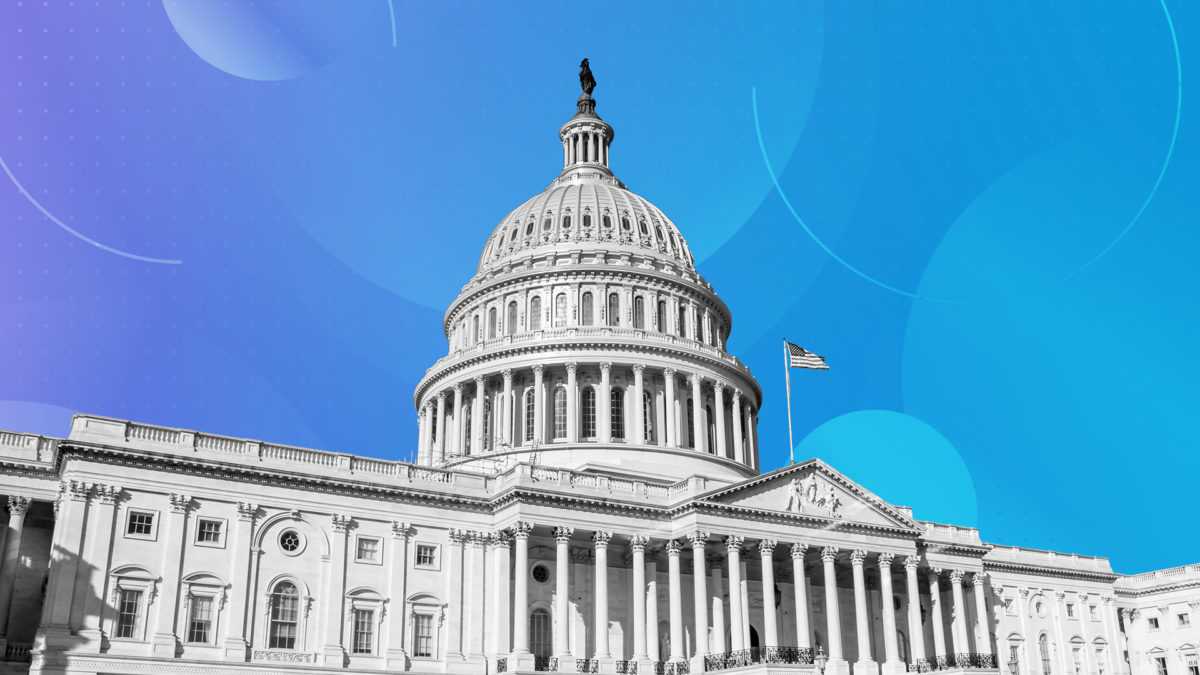US House builds consensus toward crypto action, but visions still differ

Quick Take
- A rare joint committee hearing in the U.S. House of Representatives highlighted strong agreement about the need for new crypto rules.
- Momentum continues to build for new draft bills, but whether there will be enough support to make them law remains to be seen.

A rare joint committee hearing in the U.S. House of Representatives highlighted strong consensus around the need for new rules for crypto and other digital assets, while also showcasing where bridges still need to be built between differing visions of what those policies should look like.
Despite some clear hurdles toward new rules, industry advocates and crypto holders may be encouraged by statements showing a clear and urgent desire to act from senior members of both political parties.
“The Securities and Exchange Commission needs to modify its rules for broker dealers and securities exchanges,” Rep. Patrick McHenry, the Republican chair of the House Financial Services Committee, said during that committee's unusual joint hearing with the House Agriculture Committee.
The Commodity Futures Trading Commission also needs more authority to regulate non-security digital assets, like bitcoin, McHenry argued, adding that SEC disclosure rules should be modified for digital assets that fall under that regulator’s regime.
Only through new laws passed by Congress and signed by President Joe Biden can those changes happen, continued McHenry, making his case for urgency to pass digital asset legislation this year.
“Those things have to happen because the CFTC and the SEC alone can’t do this,” said McHenry. “Congress must act.”
Agreement on need for crypto action
The top Democrat on the committee McHenry chairs, Rep. Maxine Waters, agreed that legislation should happen and noted the bipartisan cooperation between herself and McHenry in developing a comprehensive regulatory framework for stablecoins.
“Treasury and our financial regulators also identified further gaps in oversight in the crypto markets, such as limits in the SEC’s authority to go after frauds like FTX, even when they operate just off the coast of Florida,” Waters said in an opening statement for Wednesday’s hearing. “These should be bipartisan concerns, and legislation to address them should have a path to the President’s desk.”
“I hope this Congress we can quickly return to developing legislation together,” she added.
Though House Republicans don’t need Democratic votes to pass a bill out of their chamber, sign-off from Waters and other Democrats, especially the Treasury Department, could raise the odds of a bill passing the Democrat-controlled Senate significantly.
Congress working toward compromise
McHenry, one of the most effective vote counters in the House, has indicated he wants to draft legislation that will become law, meaning working to compromise with the Biden administration and congressional Democrats, rather than crafting an ideologically pure bill that would die on the vine in the Senate after a show vote in the House. He named consumer protection as a top priority in passing new legislation, in an appeal to skeptical Democrats.
Although Waters suggested cooperation in her opening statement, she made clear her parameters for what she would go along with: regulation for stablecoins, increasing the SEC’s ability to go after overseas firms, and giving the CFTC more power over spot markets for digital commodities like bitcoin.
But she made clear that re-drawing lines of jurisdiction over a majority of the tokens created since the 2017 initial coin offering bubble isn’t on the table for her.
“There’s a broader effort underfoot to establish an entirely new market structure for cryptocurrencies and their issuers. I think that we should first hit pause and consider whether our security and commodity market structure is sufficient to address these issues,” the California Democrat said.
Years-old questions still need answering
Despite support for congressional action, including from the Biden administration, longstanding questions over when a token or coin no longer fits neatly into existing financial asset definitions remain a central problem.
“I think that inflection point, it’s a challenging one,” said Matthew Kulkin, a former CFTC official and current partner at WilmerHale, which has digital asset industry clients. “It’s sort of easy to draw out the two ends of the spectrum in terms of the token being offered to raise capital, versus something that’s highly commoditized and hedged in the derivative markets, but that point in-between is a challenging one to try to draw a bright line.”
Tim Massad, a former chair of the CFTC, argued that even if government defines a digital asset as a commodity it could still also fall under securities law, or vice versa, as happens with financial derivatives. Massad pitched a self-regulatory organization, similar to what exists in traditional financial markets, on top of existing government regulation.
New York Stock Exchange Chief Operating Office Michael Blaugrund argued that similar rules governing his stock exchange should apply to firms facilitating crypto trades. That notion received some pushback from crypto industry panelists, who fear that exchanges would have to choose between listing digital commodities like bitcoin or digital securities, as markets regulators see the vast majority of tokens, if they were to register as national securities exchanges.
The ideas put forward by both witnesses and committee members, however, highlighted areas of potential overlap to create new rules for crypto and stablecoins in the U.S. Whether industry and digital asset owners will embrace those new rules or want to be left to their own devices figures to be another ongoing question as debate continues.
Disclaimer: The former CEO and majority shareholder of The Block has disclosed a series of loans from former FTX and Alameda founder Sam Bankman-Fried.
© 2025 The Block. All Rights Reserved. This article is provided for informational purposes only. It is not offered or intended to be used as legal, tax, investment, financial, or other advice.







